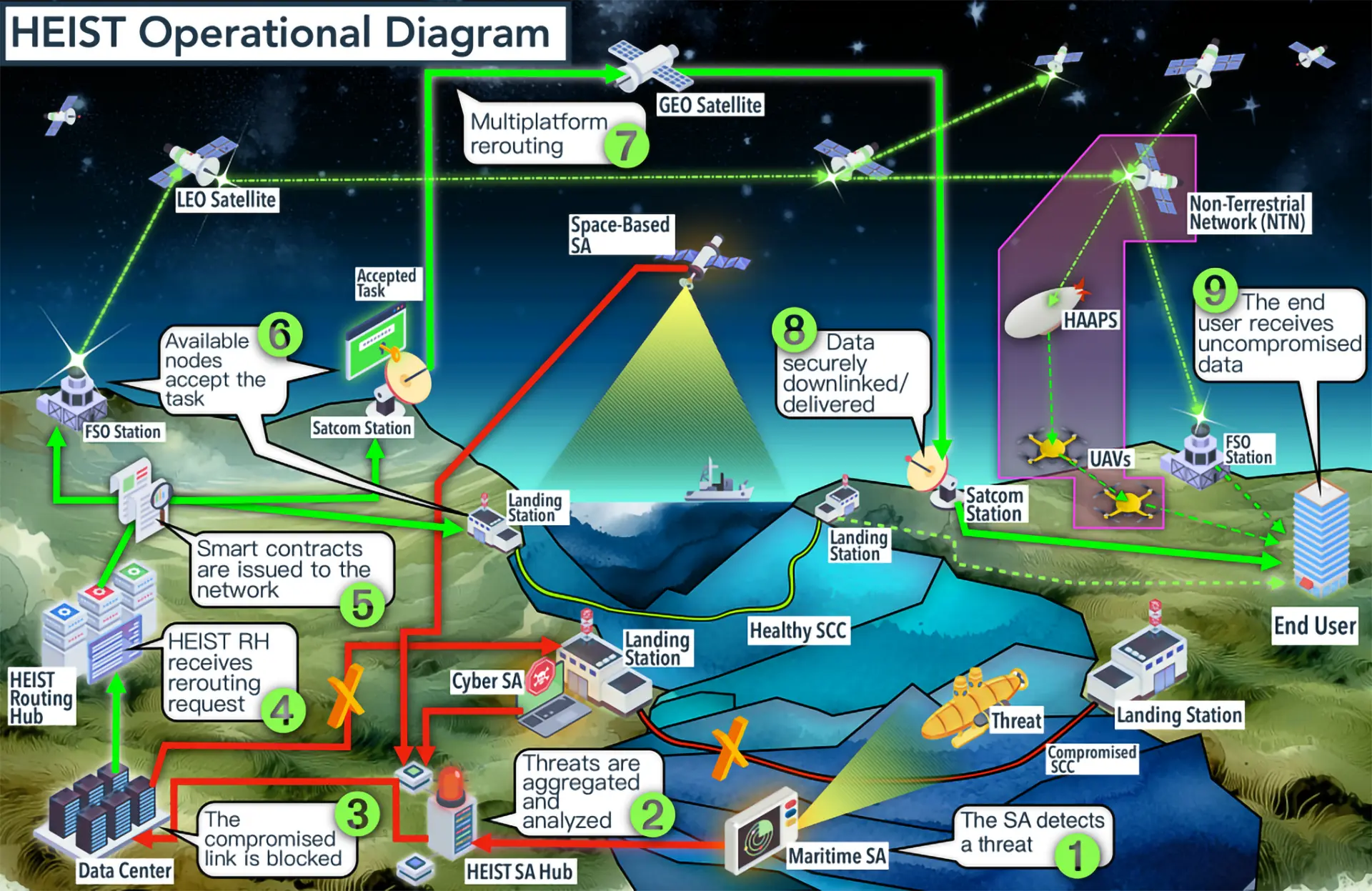

|
||

In February 2024, a missile strike in the Red Sea inadvertently revealed the fragility of the global internet. The Rubymar, a cargo ship struck by Houthi militants, dragged its anchor across 70 kilometers of seabed, severing three critical undersea fiber-optic cables that carry a quarter of internet traffic between Europe and Asia. The incident forced NATO to accelerate plans for HEIST, a project aimed at protecting and diversifying global internet pathways.
Undersea cable vulnerability: Undersea cables, the backbone of the internet, handle 95% of intercontinental communication and enable over $10 trillion in daily financial transactions. These delicate lines, often no thicker than a garden hose, lie exposed on the ocean floor. As reported by IEEE Spectrum, this vulnerability is not new; deliberate sabotage and accidental damage to cables occur regularly. Recent incidents, such as severed cables in the Baltic Sea, underline the risks, with fingers pointed at state actors like Russia and China.
Disruption safeguards: HEIST, or Hybrid Space-Submarine Architecture Ensuring Infosec of Telecommunications, seeks to mitigate such risks. It aims to enhance cable monitoring systems, enabling faster identification of damage, and develop satellite-based backups to redirect data during disruptions. Satellite technologies, while promising, face challenges like limited data capacity and weather-dependent reliability. Nonetheless, innovations like laser-optic communication could narrow the performance gap with fiber optics.
The project, backed by NATO and involving researchers from several countries, will begin trials in 2025. Tests in Sweden will focus on pinpointing cable breaks with high accuracy and creating protocols for seamless satellite data rerouting. Experts emphasize that the ultimate goal is “path diversity,” ensuring a resilient internet that integrates both seabed and orbital systems. As global digital reliance deepens, HEIST may redefine the architecture of internet security.
Sponsored byDNIB.com

Sponsored byCSC

Sponsored byIPv4.Global

Sponsored byVerisign

Sponsored byRadix

Sponsored byVerisign

Sponsored byWhoisXML API

I see “Smart Contracst” as an activation trigger in the diagram.
Somebody has been drinking far too deeply from the crypto-coin trough of green Kool Aid.
The technology to engineer packet routes on the net has been in place since the late 1960’s and has been further extended via means such as MPLS.
The diagram appears to my eyes to nothing more than a hyper-glossy, but largely vacuous, way from some “consulting” or “aerospace” company to drum up a multi $billion contract to build something that pretty much already exists.
...in the sense of a glass being half full. The other half is that this proposal is an alliance of national governments generously offering to take control of our global communications. And they even call it HEIST!
Does NATO become the governance structure for the Internet of the 2030s? Can we think of any possible bad side effects of that?